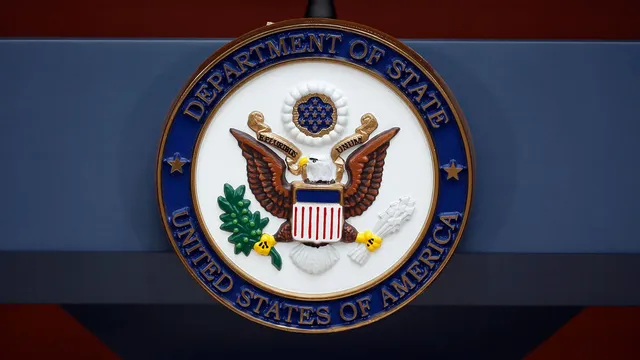
Trump administration redefines human rights report amid accusations of political bias
2025-04-22 00:00- The Trump administration is streamlining the 2024 Human Rights Report to improve focus on human rights abuse and reduce political bias.
- Critics argue that significant sections detailing abuses against minorities will be removed, signaling a decline in U.S. advocacy for human rights.
- These changes reflect a shift in U.S. foreign policy that may affect global human rights standards and the country's image internationally.
Express your sentiment!
Insights
In the United States, the State Department's restructuring of the 2024 Human Rights Report has prompted significant controversy. Under the Trump administration, reports designed to inform Congress on foreign aid allocation are undergoing modifications aimed at removing redundancy and enhancing readability. This year’s changes are intended to focus on fundamental human rights issues and align the reports more closely with U.S. statutory requirements, which the administration claims will better reflect both Republican and Democratic priorities. Critics argue that the report will be less comprehensive and eliminate vital references, such as those related to diversity, equity, and inclusion, as well as protections for marginalized groups including the LGBTQ+ community. Organizations like Amnesty International have expressed concern that these adjustments signal a departure from the U.S.'s commitment to promoting human rights internationally. The removal of aspects detailing serious abuses, such as the forced return of refugees and gross violations against humanitarian organizations, may undermine global human rights advocacy. The modifications have also been perceived as a move to lessen the pressure on other countries to uphold their human rights obligations, thus altering the U.S.'s historical role in global human rights matters. Critics assert that this reflects a broader trend under the Trump administration to roll back previously established human rights practices in favor of prioritizing a more nationalistic and less interventionist approach. Additionally, the White House's response to reports about seeking a new Secretary of Defense reinforces a position of protecting current administration officials against circulating controversies regarding operational decisions. White House Press Secretary Karoline Leavitt's strong rebuttal of NPR's report, labeling it as 'fake news,' highlights the administration's aggressive stance on media narratives. This dynamic portrays a desire to maintain a steady narrative and control over the administration's image, particularly amid ongoing challenges of transparency and credibility. In conclusion, the significant restructuring of the Human Rights Report during Trump’s tenure, alongside pushback on media coverage, illustrates a broader strategy that seeks to redefine the United States' approach to human rights on both domestic and global scales. The implications of these changes are likely to resonate beyond the immediate political context, influencing international perceptions of the U.S.'s commitment to human rights standards.
Contexts
The State Department has played a pivotal role in the advancement of human rights advocacy throughout its history. Established as a principal arm of U.S. foreign policy, the Department has often intersected with issues of human rights, reflecting both America's foundational values and its broad strategic interests. The promotion of human rights has evolved from a largely moral imperative to a multifaceted aspect of U.S. diplomacy. Officials have employed various tools, including diplomacy, economic sanctions, and public condemnation of rights abuses, to influence other nations toward greater compliance with universal human rights standards. This advocacy highlights the belief that human rights are not merely domestic concerns but are integral to global stability and security. Historically, the State Department's human rights advocacy can be traced back to the post-World War II era, where the Universal Declaration of Human Rights (UDHR) laid the groundwork for international norms. The Department's involvement in shaping these norms has continued through various administrations, often with varying degrees of commitment depending on the political climate and leadership philosophy. Each administration has approached human rights from different angles – some intensifying engagement with allies to promote democratic governance, others focusing on coercive measures against regimes accused of systematic abuses. The Cold War era saw the U.S. using its human rights agenda as a tool against communist regimes, while the post-Cold War period encouraged a more global outlook on human rights tailored to specific country contexts and challenges. In the 21st century, the challenges associated with human rights advocacy have become markedly complex, with the rise of non-state actors and transnational threats complicating traditional state-centric frameworks. The State Department has adapted its strategies to address these new realities, emphasizing multilateral engagement and collaboration with international organizations, non-governmental organizations (NGOs), and civil society. This modern approach has sought to bolster local human rights defenders and promote accountability for abuses through various mechanisms. The advent of technology has also transformed monitoring and advocacy efforts, allowing for real-time reporting and a broader platform for grassroots activism. The Department's emphasis on leveraging global partnerships marks a significant evolution in its historical approach to human rights. Despite these advancements, the effectiveness of the State Department's advocacy remains subject to debate. Critics argue that geopolitical interests often overshadow the commitment to human rights, leading to inconsistent policies that may prioritize strategic partnerships over principled stances. This inconsistency can erode credibility and hinder efforts to promote genuine advancements in human rights. Nevertheless, the State Department persists in its mission, continually reassessing its strategies to balance national interests with its commitment to human rights advocacy. The historical evolution of the State Department's role in human rights advocacy reflects a complex interplay of ideals, interests, and pragmatism that seeks to uphold human dignity while navigating the contours of international relations.